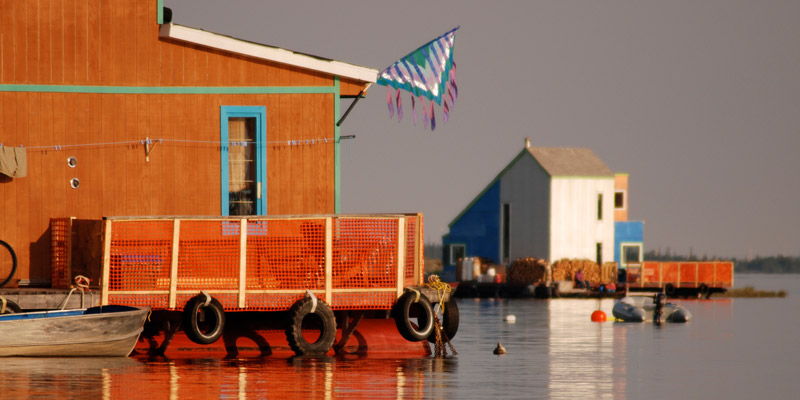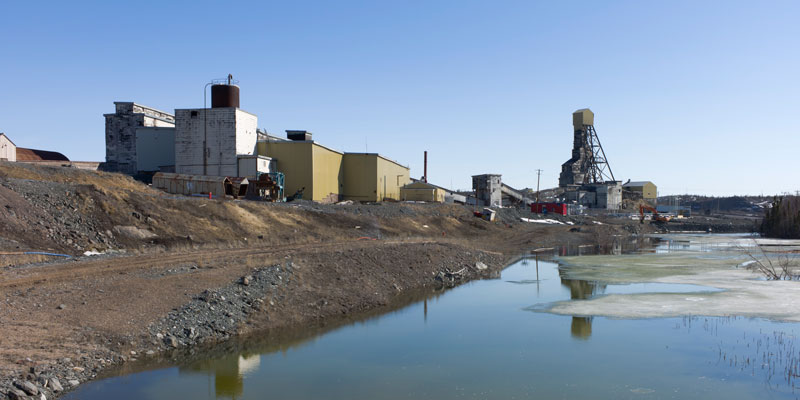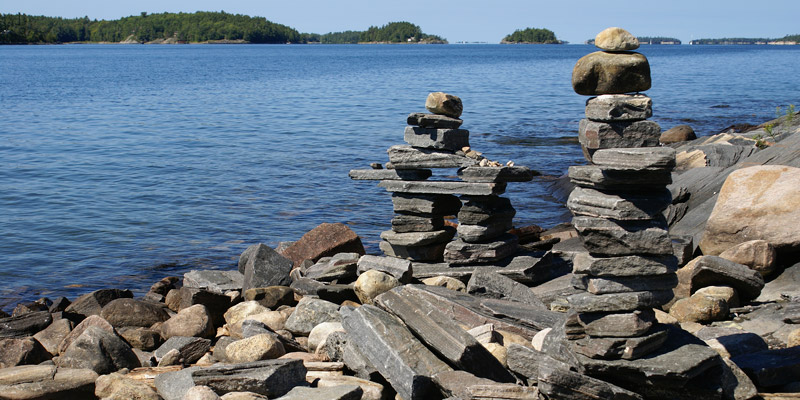Creating Opportunities for Knowledge Mobilization and Coherence among Indigenous Communities and Researchers
Principal Investigator - Khosrow Farahbakhsh, Associate Professor, University of Guelph, 2013 - 2014

Challenge
Extensive engagement and consultation with end-user communities has made it clear that further work needs to be done to bridge the gap between traditional and technical knowledge around water and wastewater systems. The existing knowledge gap acts as a barrier that prevents Indigenous communities from engaging in decision-making processes. Using tools to create a space, referred to as a “trading zone”, that facilitates cross-disciplinary or cross-cultural dialogue and collaboration, could significantly enhance community capacity and engagement around water and wastewater systems. Previous work has shown translating, developing, and presenting outputs in storytelling formats allows for greater accessibility, uptake and engagement in Indigenous communities. Therefore, this project proposes to use storytelling to engage participating Indigenous communities and extend the knowledge and outputs that have contributed to the development of a trading zone.
The proposed study builds upon the following initial project:
- Project (2012 – 2015; Khosrow Farahbakhsh) – Sustainable Water and Wastewater Treatment Systems through a Bottom-up Participatory Technology Development Process – A Case Study in Four Indigenous Communities in Canada: this project aimed to bridge the gap between traditional and technical knowledge, address technical and management capacity gaps, initiate effective infrastructural planning, and enhance Indigenous community’s capacity to reclaim a degree of control over community services, programs, and decision-making.
Project
The proposed project will involve four Indigenous communities across Canada – Curve Lake First Nation (CLFN), Dokis First Nation (DFN), Rigolet and James Smith Cree Nation (JSCN). The project will apply an integrated methodology for engagement and capacity development that builds upon work completed in the initial project to facilitate the development of a ‘trading zone’. The research methodology adopted is framed by Indigenous-defined ethical considerations as conveyed in the OCAP principles (Ownership, Control, Access, and Possession).
The project will consist of two parallel knowledge application, exchange, and translation processes. The first process will develop and showcase Indigenous community-owned tools for knowledge dissemination and mobilization. The second will focus on minimizing the gap between technical and traditional knowledge around water through a series of meetings. The first process focuses on mobilizing community members to take action, while the second process engages Indigenous and technical communities as a whole. Each process will feed into the other to build knowledge application, exchange and translation tools that promote sustainable water and wastewater systems. These processes will also focus on fostering leadership skills with the communities’ youth, engaging and enabling them to take action around water and wastewater issues.
Research uptake will be maximized through the following strategies:
- Building local capacity by developing a training network program
- Involving and training recipient organizations to serve Indigenous communities in the long-term
- Developing a bank of innovative strategies and best practices for immediate use to build local momentum
Outputs
Anticipated Outcomes Include:
- Development of a training Network program
Outcomes
The use of storytelling for knowledge translation and transfer is both culturally relevant and appropriate. All four partner communities have shown significant interest in storytelling tools, which strongly promote community engagement, and provide a means for community partners to have their voices heard. Storytelling tools will also allow for the documentation of knowledge that might otherwise be inaccessible, and provide community partners with skill sets that can be applied by other Indigenous communities.
The anticipated outcomes of the project include:
- Exchanges of experience and expertise between communities;
- Establishing an understanding around Indigenous researchers, communities, and community members; and
- Skill development related to knowledge exchange and translation, which will build local capacity and provide a wide-reaching voice to communities’ water and wastewater concerns.
More specifically, the project will address particular concerns raised by partner communities: Rigolet is concerned about source water quality, and is facing decisions regarding a Potable Water Dispensing Unit that will be installed this year; CLFN is in the process of upgrading their water/wastewater treatment systems, and is looking for ways to incorporate traditional knowledge systems into this process; DFN is facing decisions related to water supply and new water sources; and JSCN is in the process of developing a community development and a water safety plan. These circumstances strongly facilitate application and uptake of this research.




